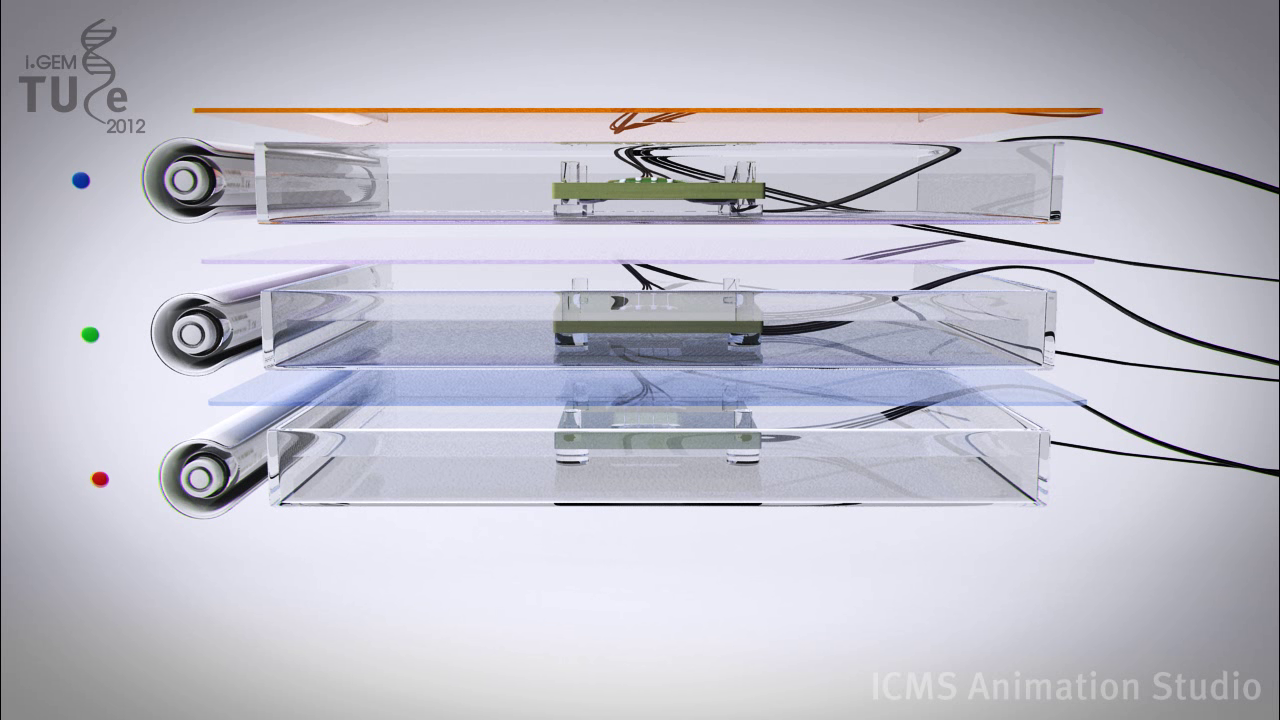Team:TU-Eindhoven/Future applications/Developments
From 2012.igem.org

Device

As said in the device part of the wiki, the resolution of the screen is only limited to your choice of electrodes. Thus creating a high definition screen should not be hard at all. More difficult is adding colors to the screen. Every screen nowadays has a color display, from the smartphones to the huge LED TV screens.
The design for our color screen needs of course the three colored yeasts. The device would then consist of three medium baths (one for each yeast). These baths would each have an appropriate light source at the most efficient wavelength for the GECO protein. Also each bath will have a filter on the top that filters away the light source, thus leaving only the fluorescent light from the GECOs. The colors have to be stacked (from bottom to top) as red – green – blue. It has to be this specific order, because in any other order the GECO could absorb the light from an underlying layer, thus preventing one color to come through to the top. With this device you can create a high definition color screen or SOMY-LCD.
Model
To improve the model for the aim of the project, the parameters in the model will be adapted, using experimental data, to predict the calcium dynamics in yeast cells. A complete sensitivity analysis needs to be applied, in order to determine the best settings for the experiments, i.e. the concentration of the extracellular Ca2+ concentration.
Furthermore, the influence of calcium diffusion through the cell could be taken into account in an extended model. Instead of MATLAB, COMSOL simulation software can be used, because it is less complex to model dependency on both space and time in COMSOL. Subsequently, the results of the model will be compared to the results of the experiments.
 "
"